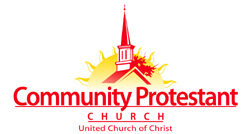The Pastor’s Study – April 2022
by: Rev. Alex Molozaiy
In last month’s article I wrote in somewhat vague terms about my upcoming (and overdue) sabbatical scheduled to take place over three months, likely beginning in July. With only two full months and a few weeks between now and then, I wanted to take this opportunity to talk a little bit about the purpose of sabbaticals as well as the preparation and planning that we are doing in the lead up to that time.
It’s probably best to think of a pastor’s sabbatical less of “time off” and more as “time away from the everyday.” While it’s true that mindful and faithful down time is an integral part of a sabbatical, it remains “church work.” The time away is an opportunity for me to explore and pursue something(s) that both piques my spiritual curiosity and will enhance my future ministry among you at CPC. In this way, the sabbatical is meant to be of mutual benefit to the pastor and the congregation. For instance, before the pandemic I was considering sabbatical plans involving an interfaith trip to the Holy Land with the goal of furthering interfaith participation and understanding here at home, perhaps even arranging a trip with members of CPC, Congregation Or Shalom, and Islamic Foundation North.
While I still harbor hope for a trip like that in the future, the events of the past two years have rapidly changed the calculus of the future of Christianity in North America. The pandemic only accelerated what appears to me to be an impending breakdown and reformation of the models of Christian life and practice that we have come to take for granted over the past hundred years or so. It’s becoming clear that younger generations are not receptive to the way churches like ours live and practice our faith. For some, this is undoubtedly out of a hostility to God or organized religion. But for others who may be ‘church-curious’ or even interested, there may be other factors that serve as a barrier to entry. As I deeply desire to share the joy of this congregation with a broader group of neighbors, I intend to use my sabbatical time this year to explore and visit congregations that have developed or implemented successful alternative models of ‘being the Church.’ These could include (but aren’t limited to) churches with: shared residence(s), membership recommitments, alternative meeting times or leadership models, without (or minimal) building property entanglements. In other words, what are these churches doing differently and how is that keeping them vital? While I don’t expect every idea that’s been successful elsewhere to work for our community, it’s quite possible that an idea that wouldn’t work for us could generate an idea that will.
Jesus taught his disciples that the Church, like the Law of Moses, exists for the people and not the other way around. If we are not a place where those who are lost are able to find God and become who God is calling them to be, then we have a responsibility to find and remove those stumbling blocks. The truth is that Christian worship and practice is always changing. One wonders if we’d recognize the earliest church services or vice-versa. But no matter what the church looks like or how it worships, there will be a place where the Good News will continue to be proclaimed and people ready to receive it. I’m excited for what new thing God will do next and for what fruit our time apart will bear.
If you’d ever like to discuss my sabbatical or have questions, feel free to contact me or Moderator Jen Popowitch.

